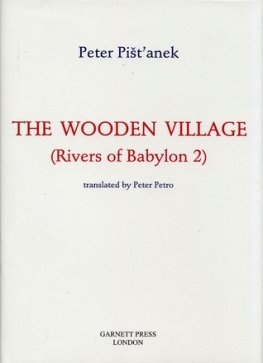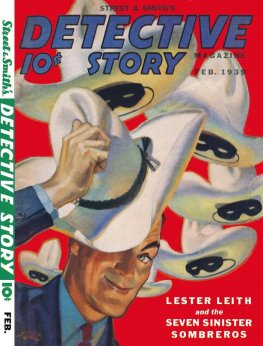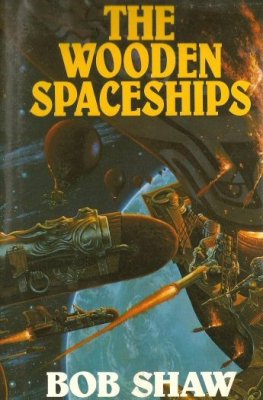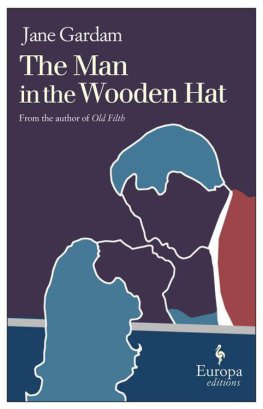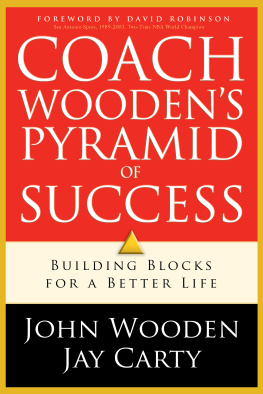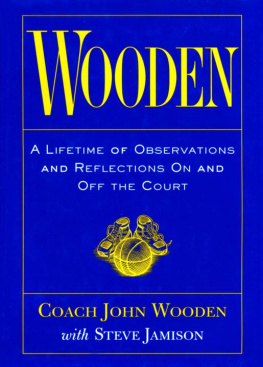Peter Pišťanek - The Wooden Village
Here you can read online Peter Pišťanek - The Wooden Village full text of the book (entire story) in english for free. Download pdf and epub, get meaning, cover and reviews about this ebook. year: 2008, publisher: Garnett Press, genre: Prose. Description of the work, (preface) as well as reviews are available. Best literature library LitArk.com created for fans of good reading and offers a wide selection of genres:
Romance novel
Science fiction
Adventure
Detective
Science
History
Home and family
Prose
Art
Politics
Computer
Non-fiction
Religion
Business
Children
Humor
Choose a favorite category and find really read worthwhile books. Enjoy immersion in the world of imagination, feel the emotions of the characters or learn something new for yourself, make an fascinating discovery.
- Book:The Wooden Village
- Author:
- Publisher:Garnett Press
- Genre:
- Year:2008
- Rating:5 / 5
- Favourites:Add to favourites
- Your mark:
- 100
- 1
- 2
- 3
- 4
- 5
The Wooden Village: summary, description and annotation
We offer to read an annotation, description, summary or preface (depends on what the author of the book "The Wooden Village" wrote himself). If you haven't found the necessary information about the book — write in the comments, we will try to find it.
The Wooden Village — read online for free the complete book (whole text) full work
Below is the text of the book, divided by pages. System saving the place of the last page read, allows you to conveniently read the book "The Wooden Village" online for free, without having to search again every time where you left off. Put a bookmark, and you can go to the page where you finished reading at any time.
Font size:
Interval:
Bookmark:
Peter Pianek
The Wooden Village
Introduction
Introduction Peter Pianek (pronounced Pishtyanek) is one of the most talented prose writers to appear after the fall of Communism in Slovakia. He is also a colourful and controversial personality whose many-sided activities were unthinkable in the Communist era. He was born in 1960 in Devnska Nov Ves, a village now swallowed up by Bratislava, the capital of Slovakia. He enrolled in Bratislavas Academy of Performing Arts, but did not graduate. He was also a drummer in a very well known rock group. At the end of the 1980s he began to publish in the literary monthly Slovensk Pohady (Slovak Views). His breakthrough came with Rivers of Babylon (1991, English publication 2007 by Garnett Press), a novel that caused a sensation and catapulted him into fame. Followed by The Wooden Village and The End of Freddy (the latter published by Garnett Press in tandem with this novel), Rivers of Babylon has become a trilogy. Since the end of the 1990s Peter Pianek has worked for advertising agencies and edited an influential Internet magazine Inzine. He has also become something of an expert on brandies and whiskies.
Pianeks reputation is assured by the originality, fine craftsmanship and imaginative inventiveness of Rivers of Babylon and the rest of the trilogy. This second novel develops the story of the anti-hero of the first, Rcz, an unstoppable idiot of genius, a gangster with no conscience, but centres the plot on a secondary character from the first novel Freddy Piggybank, a sexually troubled car park attendant, who finds his path to happiness opened by the wild freedoms of the early nineties, and a new character, an emigr returning from America to an unrecognizable homeland. Pianeks black humour is now tempered with a gentle, only slightly ironic romanticism.
The Wooden Village, a cluster of kiosks in an old car park, chronicles the chaotic licentiousness of morals and commerce in a Slovakia where corruption and opportunism is masked as democracy.
Todays Slovak readers acknowledge Peter Pianek as the countrys most flamboyant and fearless writer, though many are shocked by his iconoclasm. A literature that once showed the Slovaks as a nation of wise bee-keepers and virtuous matriarchs now presents the nation stripped of its myths and false self-esteem. The Wooden Village carries on a process of demythologisation.
Some guidance for the British reader
Time and place
The novel is set in 1992, when the Slovaks are breaking away from the Czechs to achieve independence, and anything goes. Most of the action takes place in the capital, Bratislava, then the capital of a Slovakia which was still part of Czechoslovakia. Other scenes of the novel are in Nov Ves, a village, now a suburb of Bratislava, and on the Hungarian-speaking countryside from where the dreaded Rcz and the unhappy Bartalo couple originate.
The currency is the Slovak crown, then worth 50 to the pound sterling.
Some characters and how to pronounce their names
We have decided to keep Slovak spellings of characters names, but here is a guide to pronouncing the more problematic and important ones. All names are stressed on the first syllable:
Rcz, Businessman of the Year pronounce as Rahts
Junec, a Slovak emigrant in the USA Yoonets
Menek, Freddy Piggybanks real name Meshtyanek
Ki, the village butcher Kish
Erika, his daughter Air-s[as in pleasure]ika
Bartalo, Erikas husband Bartalosh
po, a gypsy stoker Shiposh
Mozo, ex-secret policeman Mozogne [n as in Boulogne]
olik, ex-secret policeman Sholik
Peter Petro and Donald Rayfield
The Wooden Village
For Maria and Tom Kaluba
~ ~ ~
Those of my dear readers who happen to have read my novel Rivers of Babylon have a right to wonder if this book might begin by not mentioning Mr Rcz. They are right: Mr Rcz is not going to be the subject. At least not as much as any reader spoiled by the first book might expect.
But perhaps I may be allowed to reveal a thing or two about Rczs private and professional life.
Mr Rcz is pleased with life and is happily married. He is proud of his healthy son; he is doing well, and wants to use this opportunity to say hello to all his well-wishers. Both his hotels, his line of restaurants, his investment fund Oxford Captivate & Consumption, his real estate company X-Racio and his private security service Sekuritatia are all prospering. Quite recently Mr Rcz acquired a large hangar on two hectares of land in the grounds of the commercial port, where he intends to open a duty-free warehouse. All of this will depend on the internal convertibility of the Slovak crown. Moreover, Mr Rcz has founded a new division of his Sekuritatia firm, specialising in recovering difficult debts.
For example: youre a businessman. A company owes you money. You send them an invoice, a reminder invoice, a final reminder etc, and they still wont pay. So you contact the people from Sekuritatia and they buy your debt. Clear now? Other businessmen buy goods and stocks, but Rcz buys debt, too just to keep business turning over. For an apparently irrecoverable debt of, say, half a million crowns, he will give you in cash a full four hundred thousand, that is, eighty per cent of the sum due. You go away satisfied and you light a candle in the nearest church praying that the Great Benefactor Rcz will live at least a hundred years.
While the candles are burning, olk and Tup, employed by Sekuritatia ever since it was founded, do fieldwork to find out about the debtors company: what the owners or owners names are, where they live, what cars they own and where theyre parked, if they have a family, children and their ages and schools, if they have pets (a dog or a cat is ideal we havent reached the stage of a severed horse head on a pillow) and where they walk them. When they have this information, they go back to the Sekuritatia office and give a detailed report to their chief, Mozo. A meeting then takes place. Afterwards, as they say, they get going.
The whole operation usually proceeds on identical lines.
Like this: a beautiful eight-year old little girl, angelic, with long blonde hair, a daughter of the owner of the company in debt, is walking home from school. A huge car stops by her and a nice uncle offers her sweets. Shes asked if shed like to be taken home, to such and such an address. The little girl is surprised that the nice uncle knows her address. The uncle laughs. The nice uncle is an old friend of Daddys. The little girl gets in the car; her movements already give an embryonic, but very lovely hint of the charm with which she will one day get into other uncles cars.
The nice uncle asks about the dog: do they still have the same dachshund?
The girls nods, yes, they have a little dog, hes called Satchmo.
And here we are, Miss, the nice uncle says, as he stops in front of her house. This is how to open the door. You can take all those sweets, theyre bad for me, Ive got diabetes, says the nice uncle. One more thing, he adds, I almost forgot: please give this to Daddy and say hello to him from me.
The little girl takes the envelope and sweets, says thank you nicely, with the charm we have described, and gets out of the car. She waves to the nice uncle and then vanishes in the doorway.
A real woman, Tup says, then puts the car in gear, and the Mercedes speeds up the street.
In the evening the little girl will excitedly tell her parents about riding in a huge car, and so on. Her horrified father, the debtor, will open the envelope. The note reads:
Dear debtor,
Font size:
Interval:
Bookmark:
Similar books «The Wooden Village»
Look at similar books to The Wooden Village. We have selected literature similar in name and meaning in the hope of providing readers with more options to find new, interesting, not yet read works.
Discussion, reviews of the book The Wooden Village and just readers' own opinions. Leave your comments, write what you think about the work, its meaning or the main characters. Specify what exactly you liked and what you didn't like, and why you think so.

